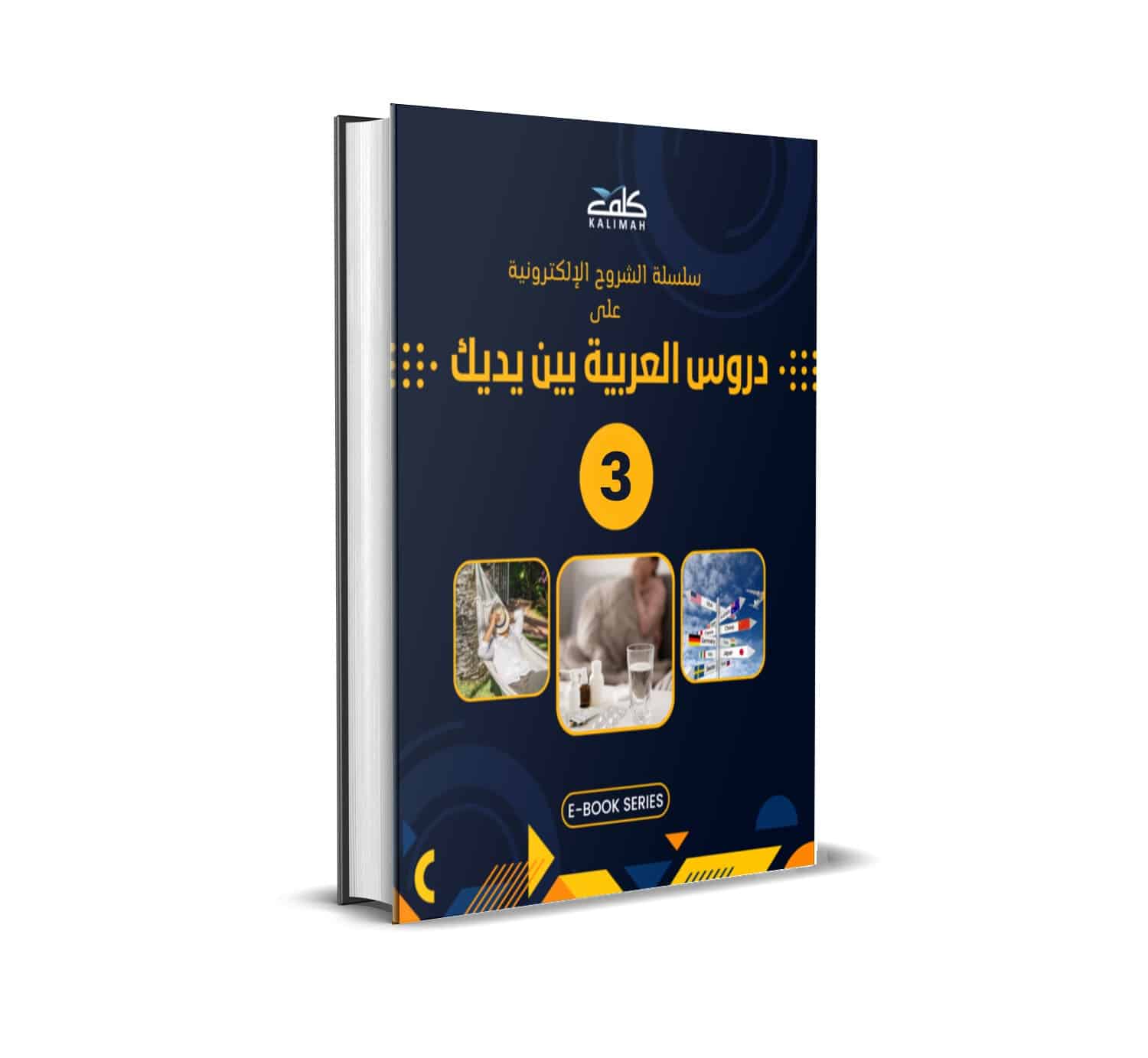In a nutshell: Arabic Language Practice focuses on tracing letters, practicing dialogues, and listening to podcasts. Improve reading, sentence-building, and verb conjugation. Enhance your skills with online courses offering expert feedback and a structured curriculum for efficient language learning.
Marhaban! Welcome to Kalimah, where the journey to mastering the Arabic language is filled with engaging activities, practical exercises, and the warm guidance of experienced teachers.
I’m delighted to share with you my insights and tips on how to practice Arabic effectively. Learning a new language can be daunting, but with the right approach and consistent practice, you’ll find yourself speaking, reading, and writing Arabic with confidence.
Arabic Language Practice
To truly master the Arabic language, practice is essential. Let’s dive into various aspects of Arabic practice, each accompanied by exercises that will engage and challenge you.
Arabic Alphabet Practice
The Arabic alphabet is the cornerstone of the language. Each letter has its own unique shape and sound, and learning them is the first step towards reading and writing in Arabic.
Arabic Alphabet Tracing
Take a moment to trace the following letters on a piece of paper. This will help you get a feel for their shapes and improve your handwriting.
You can print this practice image excerpted from our course curriculum at Kalimah Center and trace the letters to practice writing them.
Practice tracing these letters and saying them aloud as you write.
Example:
- ب – (Ba) – Pronounced as “b” in “bat”
- ت – (Ta) – Pronounced as “t” in “top”
Arabic Handwriting Practice Sheets
Handwriting is an art, and Arabic script is particularly beautiful. Regular practice with handwriting sheets can help you write more fluidly and confidently.
Interactive Exercise: Writing Practice
Download a basic Arabic handwriting practice sheet and spend 10 minutes each day copying the letters. Focus on the flow of the pen and the connections between the letters.
Example Sheet:
Write each letter multiple times, focusing on maintaining a consistent size and shape.
Arabic Conversation Practice
Speaking is one of the most enjoyable parts of learning a new language. Engaging in conversations helps solidify your understanding and builds your confidence.

Arabic Conversation Starters
Start simple with everyday phrases and greetings. Practice with a partner or record yourself to track your progress.
The following exercise reflects Kalimah‘s method of using interactive dialogues to teach Arabic conversation. By engaging learners in active practice, they can better internalize the language and gain confidence in their speaking abilities. This example is just a glimpse of the many interactive exercises Kalimah employs in its curriculum in Online Arabic Learning Courses For Adults & Online Arabic Learning Courses For Children.
Interactive Dialogue Practice
Instructions:
- Partner Up: Find a classmate or friend to practice with.
- Assign Roles: Decide who will be Qasim (the new student) and who will be Ammar (the current student).
- Fill in the Blanks: Take turns reading the dialogue out loud, filling in the blanks with the appropriate Arabic words or phrases. Use the English translations as a guide.
- Switch Roles: Repeat the exercise, switching roles.
Dialogue:
Qasim: صباح الخير (sabah al-khayr) (Good morning)
Ammar: صباح النور (sabah an-noor) (Good morning)
Qasim: اسمي قاسم، أنا طالب جديد في معهد اللغة العربية (ismii qasim, ana talib jadid fi ma’had al-lughah al-‘arabiyyah) (My name is Qasim, I’m a new student at the Arabic Language Institute)
Ammar: ________________ (Welcome!)
Qasim: ________________ (Nice to meet you, and you, what’s your name?)
Ammar: اسمي عمار (ismii ‘ammar) (My name is Ammar)
Qasim: ________________ (Where are you from, Ammar?)
Ammar: أنا من كشمير، أنا كشميري، ومن أين أنت؟ (ana min kashmir, ana kashmiri, wa min ayna ant?) (I’m from Kashmir, I’m Kashmiri, and where are you from?)
Qasim: أنا من الصين، أنا صيني (ana min as-sin, ana sini) (I’m from China, I’m Chinese)
Ammar: ________________ (Pleased to meet you.)
Qasim: ________________ (Me too.)
Ammar: إلى اللقاء (ila al-liqaa) (Goodbye)
Qasim: إلى اللقاء (ila al-liqaa) (Goodbye)
Challenge: Once you’ve completed the dialogue, try adding a few more lines of your own. Maybe Qasim asks Ammar about his favorite class, or Ammar suggests a place for lunch. Be creative and have fun!
Tips for Effective Practice:
- Pronunciation: Pay attention to the correct pronunciation of each word and phrase. Listen to native speakers for reference.
- Vocabulary: Try to incorporate new vocabulary from the dialogue into your conversation.
- Fluency: Practice the dialogue multiple times to improve your fluency and confidence.
- Cultural Context: Be mindful of cultural norms and greetings when engaging in conversations in Arabic.
Arabic Listening Practice
Listening is crucial for understanding the nuances and rhythms of Arabic. It also helps you improve your pronunciation and comprehension.
Listening to Arabic Dialogues and Podcasts
Immerse yourself in Arabic by listening to Arabic dialogues and podcasts. This not only enhances your listening skills but also introduces you to different dialects and cultural contexts.
Here in the video is an interactive exercise you can use to engage in listening practice based on the content of Kalimah‘s curriculum in Online Arabic Learning Courses For Adults:
Instructions: Listen to the conversation between Ahmed and the landlord and answer the questions below.
Watch the first part of the video, then come back here you will find some questions below, then the conversation text, and finally the answers.
Please don’t look at our reference answers until you have completed your own.
Questions:
- What is Ahmed looking for?
- Does the landlord have an apartment for rent?
- How many rooms does the apartment have?
- On which floor is the apartment?
Conversation:
Ahmed: أبحث عن شقه للإيجار فهل لديك شقة من فضلك؟ (I am looking for an apartment to rent. Do you have an apartment for rent?)
Landlord: نعم لدينا شقه جميله جدا (Yes, we have a very beautiful apartment)
Ahmed: كم غرفه في الشقه (How many rooms are in the apartment?)
Landlord: في الشقه غرفه نوم وغرفه أطفال وغرفه جلوس (The apartment has a bedroom, a children’s room, and a living room)
Ahmed: في أي دور الشقة؟ (On which floor is the apartment?)
Landlord: الشقه في الدور الثالث (The apartment is on the third floor)
Answers:
- Ahmed is looking for an apartment to rent.
- Yes, the landlord has a very beautiful apartment for rent.
- The apartment has three rooms: a bedroom, a children’s room, and a living room.
- The apartment is on the third floor.
Challenge:
- Listen to the conversation again and see if you can find out any additional information about the apartment.
- Can you write a short dialogue between two people where one person is looking for an apartment and the other person is the landlord?
Practice Arabic Reading
Reading enhances your vocabulary and helps you understand sentence structures. Start with simple texts and gradually move to more complex ones.
Arabic Reading Practice Worksheets
Worksheets with short passages and questions can help you practice reading comprehension.
Interactive Reading Exercise
For example, Kalimah uses interactive exercises to help learners practice their Arabic reading comprehension. Here’s an interactive exercise based on the following image of our curriculum in Online Arabic Learning Courses For Adults:
Instructions:
- Read the passage carefully. (Use the transliteration and transliteration below to help you if needed).
- Answer the questions below in Arabic.
- Check your answers against the provided solutions.
Passage:
Transliteration:
iqtarabat al-‘utlah, wa al-usrah tufakkiru ayna sataqdee al-‘utlah. satusaafir al-usrah ila misr in shaa’a allah; liyaraw nahra al-nil, wa sayusafiruna bil-bahr; li’anna al-safar bil-bahr rakhees, wa al-safar bil-jaw ghal, satusaafir al-usrah yawma al-sabt in shaa’a allah, wa sataqdee usbu’an hunak.
Translation:
The vacation is approaching, and the family is thinking about where they will spend the vacation. The family will travel to Egypt, God willing, to see the Nile River, and they will travel by sea because travel by sea is cheap, and air travel is expensive. The family will travel on Saturday, God willing, and will spend a week there.
Questions:
- ما الذي تفكر فيه الأسرة؟ (What is the family thinking about?)
- إلى أين ستسافر الأسرة؟ (Where will the family travel?)
- لماذا سيسافرون بالبحر؟ (Why will they travel by sea?)
- متى ستسافر الأسرة؟ (When will the family travel?)
- كم يوما ستقضي الأسرة في مصر؟ (How many days will the family spend in Egypt?)
Answers:
- تفكر الأسرة اين ستقضي العطلة (tufakkir al-usrah ayna sataqdi al-‘utlah) (The family is thinking about where they will spend the vacation.)
- ستسافر الأسرة إلى مصر (satusaafir al-usrah ila misr) (The family will travel to Egypt.)
- سيسافرون بالبحر لأن السفر بالبحر رخيص (sayusafirun bil-bahr li’anna al-safar bil-bahr rakhees) (They will travel by sea because travel by sea is cheap).
- ستسافر الأسرة يوم السبت. (satusaafir al-usrah yawm al-sabt) (The family will travel on Saturday.)
- ستقضي الأسرة اسبوعا في مصر. (sataqdi al-usrah usbu’an fi misr) (The family will spend a week in Egypt.)
Know more about Syllable Structure In Arabic
Arabic Practice Sentences
Constructing sentences is a great way to practice grammar and vocabulary. Start with simple sentences and gradually build more complex ones.
Creating Sentences with New Vocabulary
Choose new words you have learned and use them in sentences. This reinforces your memory and understanding of their usage.
Interactive Exercise: Sentence Construction
Using the following words, create your own sentences:
- كتاب (Kitab) – Book
- مدرسة (Madrasa) – School
- مدينة (Madina) – City
Examples:
- أحب قراءة الكتاب. (Uhibu qira’at al-kitab.) – I love reading the book.
- المدرسة قريبة من المنزل. (Al-madrasa qariba min al-manzil.) – The school is near the house.
- أسكن في مدينة كبيرة. (Askunu fi madina kabira.) – I live in a big city.
Arabic Verb Conjugation Practice
Understanding verb conjugations is essential for constructing sentences. Practice with different tenses and subjects to master this aspect of Arabic grammar.
Verb Conjugation Tables
Use tables to practice conjugating verbs in various tenses. Start with common verbs like كتب (Kataba) – to write.
Interactive Exercise: Conjugating Verbs
Conjugate the verb كتب (Kataba) in the present tense for the following pronouns:
- أنا (Ana) – I
- أنتَ (Anta) – You (male)
- هي (Hiya) – She
Answers:
- أنا أكتب (Ana aktub) – I write
- أنتَ تكتب (Anta taktub) – You write
- هي تكتب (Hiya taktub) – She writes
Basic Arabic Workbook for Revision and Practice
Having a dedicated workbook helps consolidate your learning through structured exercises and revision.
You can find workbooks for different levels in our book shop here.
Using Workbooks Effectively
Set aside time each day to work through exercises in your Arabic workbook. Focus on different skills, such as reading, writing, and grammar.

Ready to Transform Your Arabic Practice into Mastery?
You’ve got the exercises, now it’s time to level up your skills! Kalimah Center‘s online Arabic courses offer the perfect complement to your hands-on practice, whether you’re a beginner or an advanced learner.
Why Kalimah? Because our courses provide the guidance and structure you need to take your skills to the next level:
- Guided Practice: Don’t just practice blindly. Our expert teachers will correct your mistakes and provide feedback so you can improve faster.
- Structured Curriculum: Our courses are carefully designed to build your skills step-by-step, so you can make consistent progress.
- Hands-On Learning: Our courses go beyond drills, immersing you in authentic conversations, texts, and cultural experiences.
- Personalized Guidance: Whether you’re a beginner or advanced learner, our expert teachers tailor lessons to your individual needs and goals.
- Complete Arabic Mastery: We don’t just focus on one skill. Kalimah develops your reading, writing, listening, AND speaking abilities, giving you the confidence to navigate real-life Arabic scenarios.
Imagine what you could do with fluent Arabic:
- Kids? Enroll them in our specialized children’s courses and watch them blossom into confident Arabic speakers.
- Adults? Choose from beginner to advanced levels and explore topics from everyday life to complex societal issues in the Adults’ courses.
- Want to read Arabic literature? We’ll unlock the classics for you.
Kalimah isn’t just a course, it’s your Arabic language partner. Click here to discover our programs and take the next step on your path to Arabic mastery.
Conclusion:
To excel in Arabic language practice, focus on key areas: alphabet tracing, handwriting, conversation, listening, reading, and sentence construction. Start with tracing Arabic letters to master their shapes and sounds, using practice sheets to improve your writing skills. Engage in daily conversation exercises to build speaking confidence, using interactive dialogues to enhance fluency.
Boost listening comprehension by tuning into Arabic dialogues and podcasts, which also aid in pronunciation. Incorporate reading exercises to expand vocabulary and understand sentence structures. Construct sentences with new words and practice verb conjugations to strengthen grammar. For comprehensive skill development, integrate structured online Arabic courses that offer expert feedback, guided practice, and a well-rounded curriculum to advance your proficiency in Arabic.












